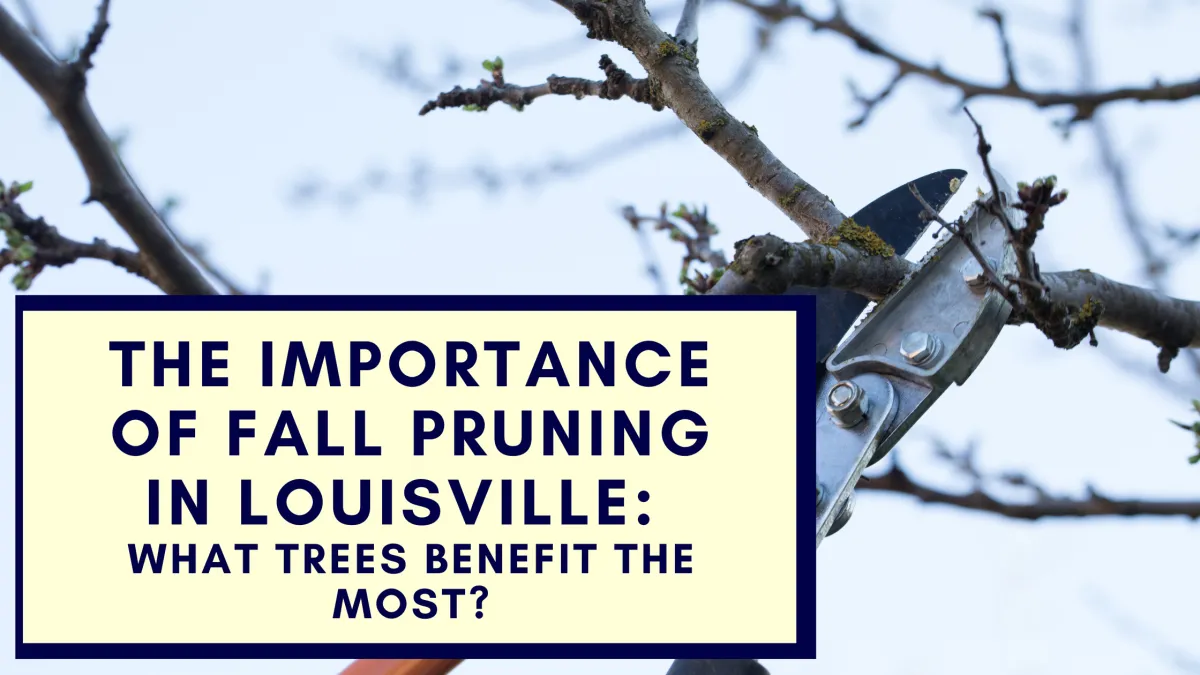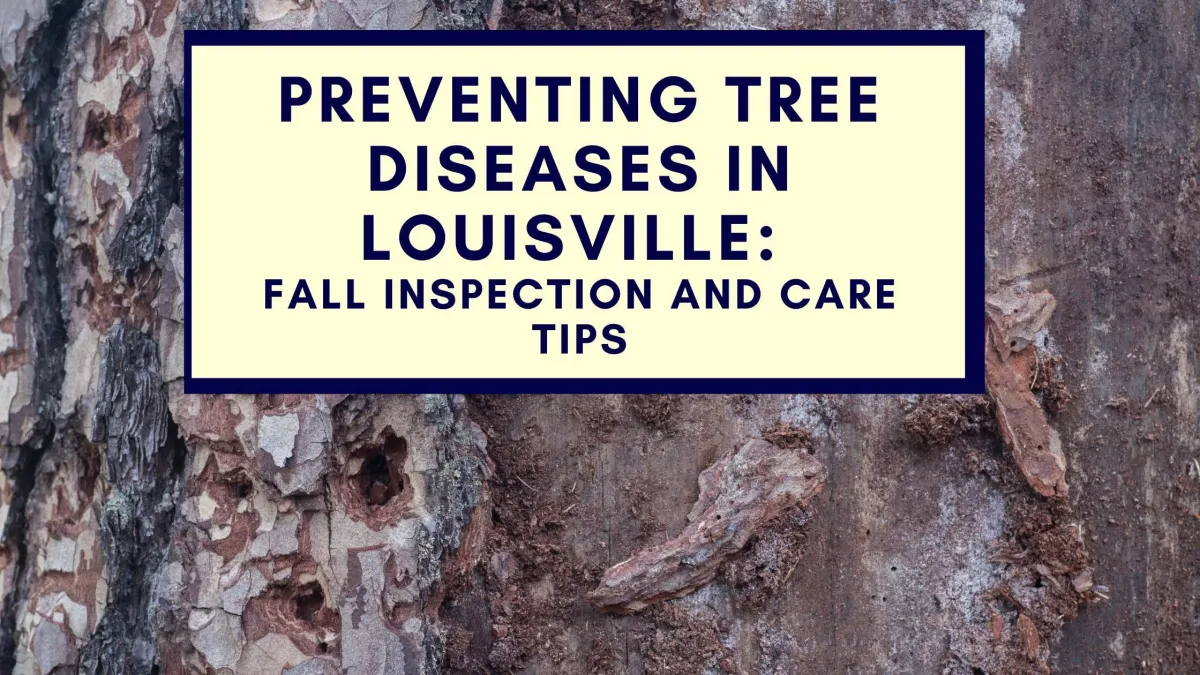
Blog > A Guide for Arborist Service
Fall Foliage Favorites: Best Trees and Shrubs for Stunning Autumn Colors in Louisville
Louisville's diverse landscape provides a stunning backdrop for autumnal colors. If you're looking to add a touch of seasonal beauty to your yard, consider planting these trees and shrubs that are renowned for their spectacular fall colors.
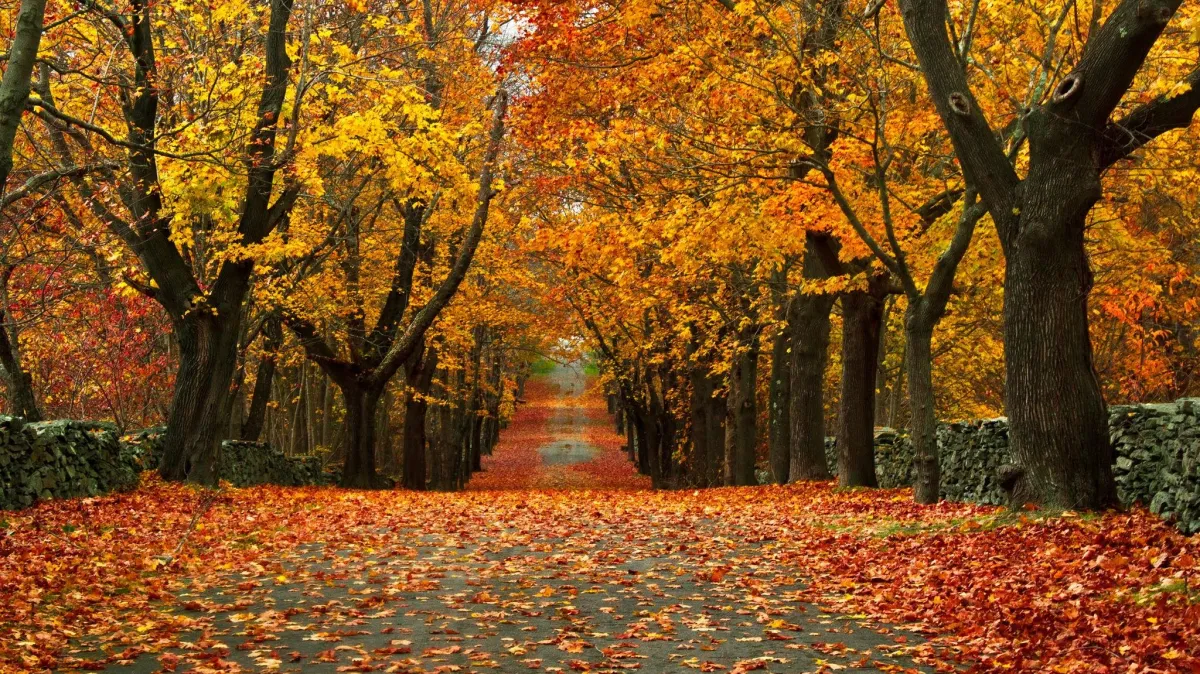
Trees with the most vibrant foliage
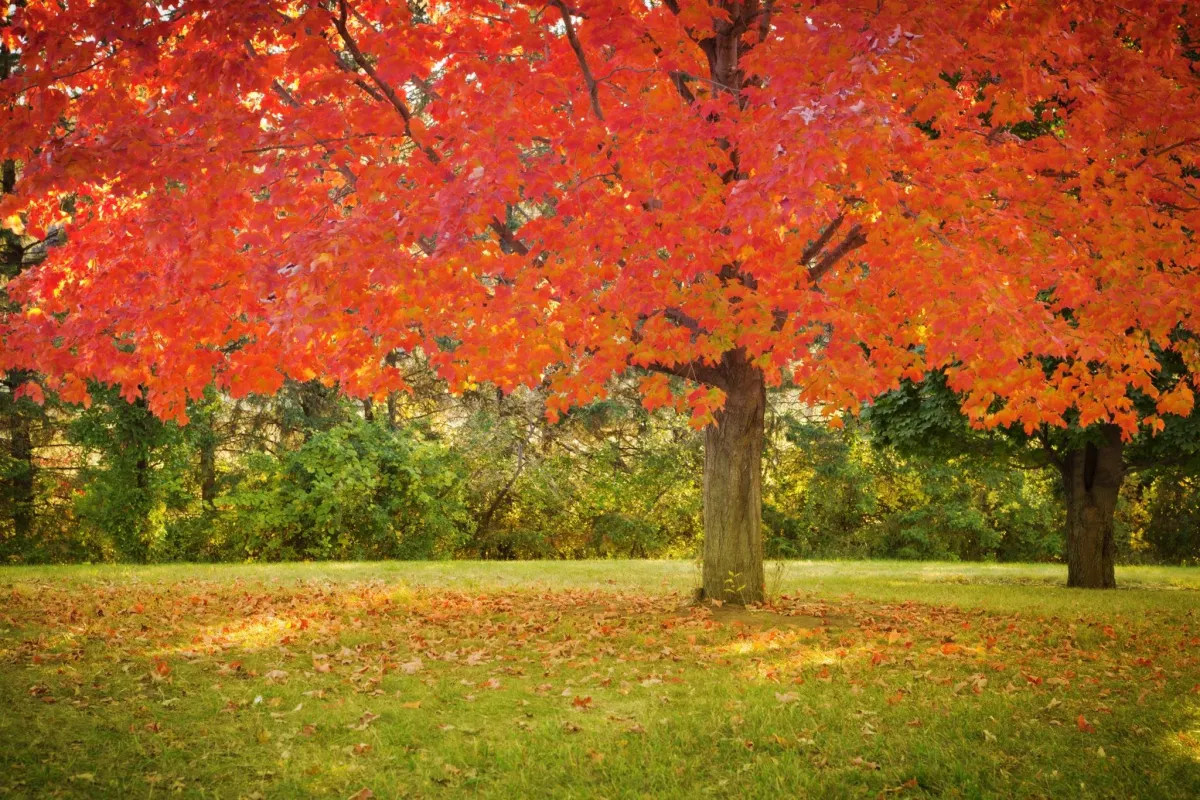
Red Maple (Acer rubrum)
This native tree is a popular choice for its brilliant red fall foliage. It thrives in a variety of soil conditions and can grow to be quite large. Red maples are commonly found in Louisville parks and forests, adding a splash of color to the cityscape.
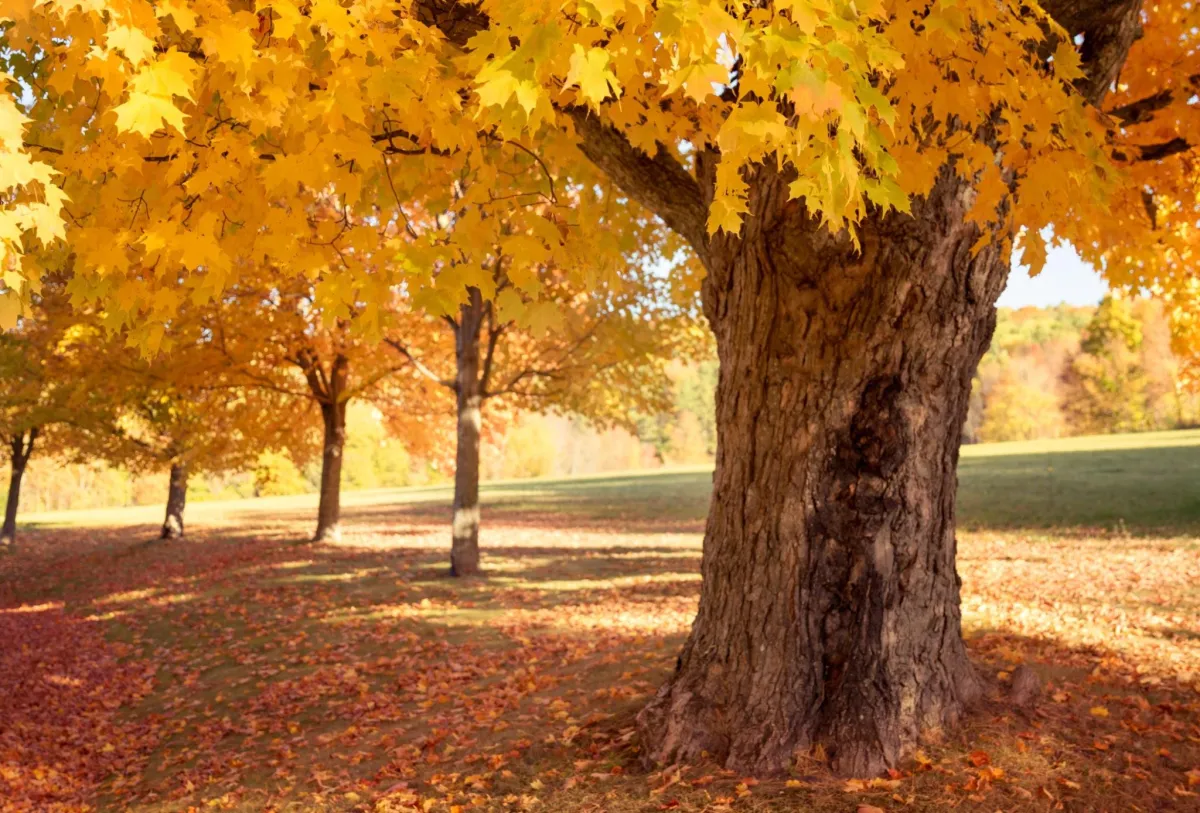
Sugar Maple (Acer saccharum)
Another native maple, the sugar maple offers a stunning display of golden yellow leaves in autumn. It is a popular choice for its shade and ornamental value. Sugar maples are also an important source of maple syrup.
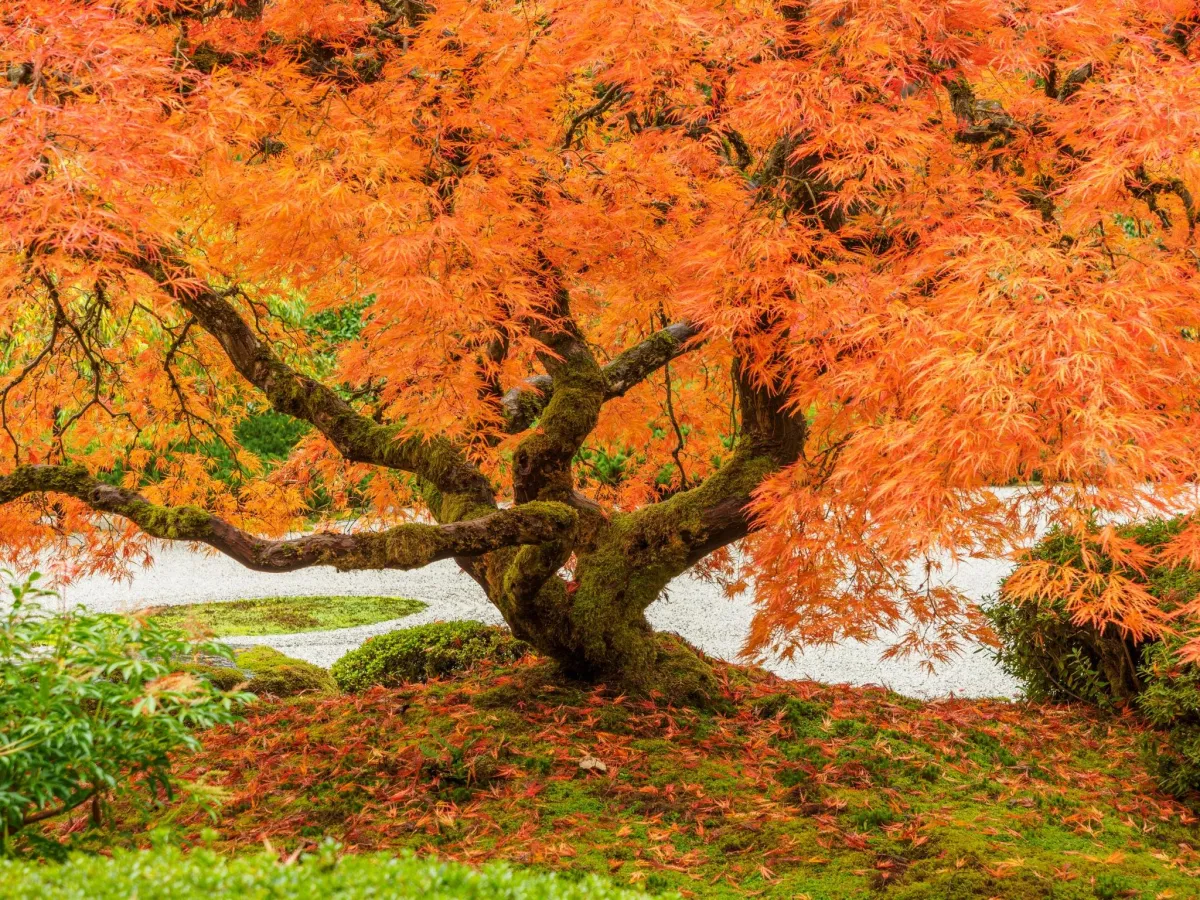
Japanese Maple (Acer palmatum)
While smaller than the maples mentioned above, Japanese maples offer a variety of fall colors, including red, orange, purple, and yellow. They are excellent choices for smaller yards or containers. Japanese maples are native to Japan and Korea and are prized for their ornamental value.
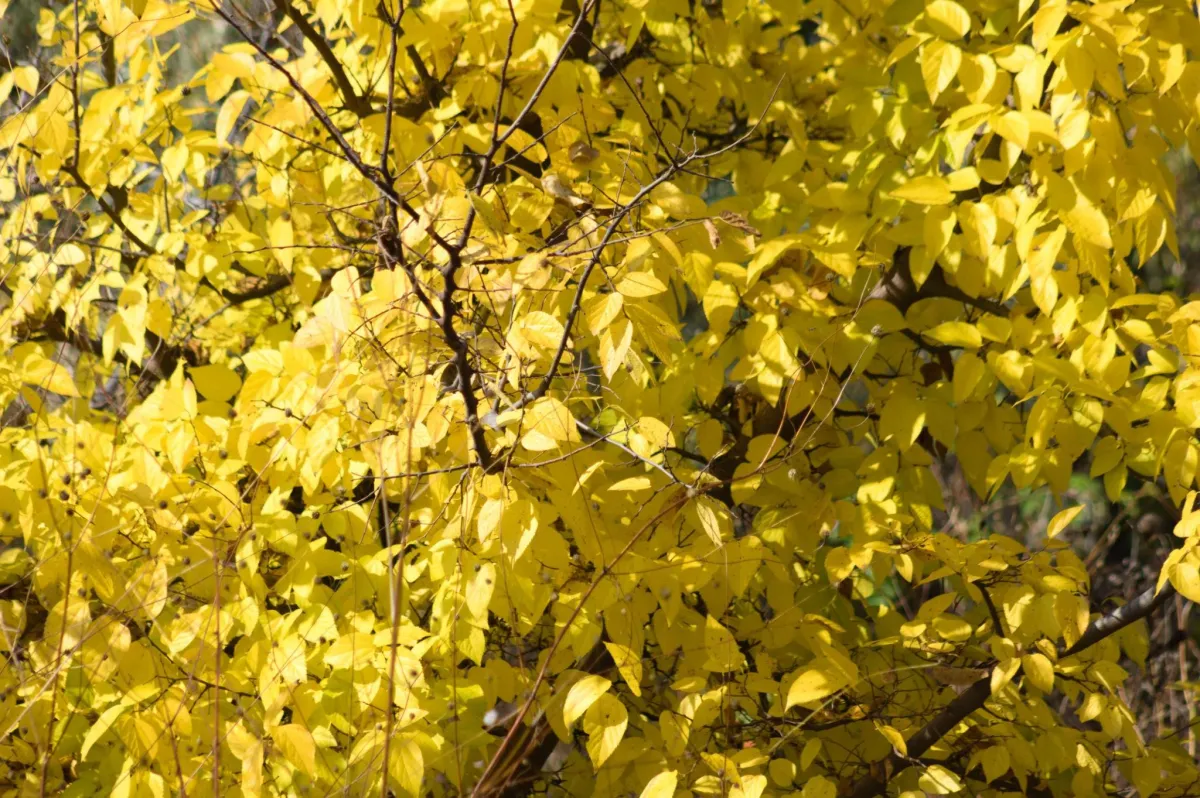
Hackberry (Celtis occidentalis)
This native tree offers a surprising display of yellow fall foliage. It is a tough and adaptable tree that can tolerate a variety of growing conditions. Hackberries are often found growing along riverbanks and in floodplains.
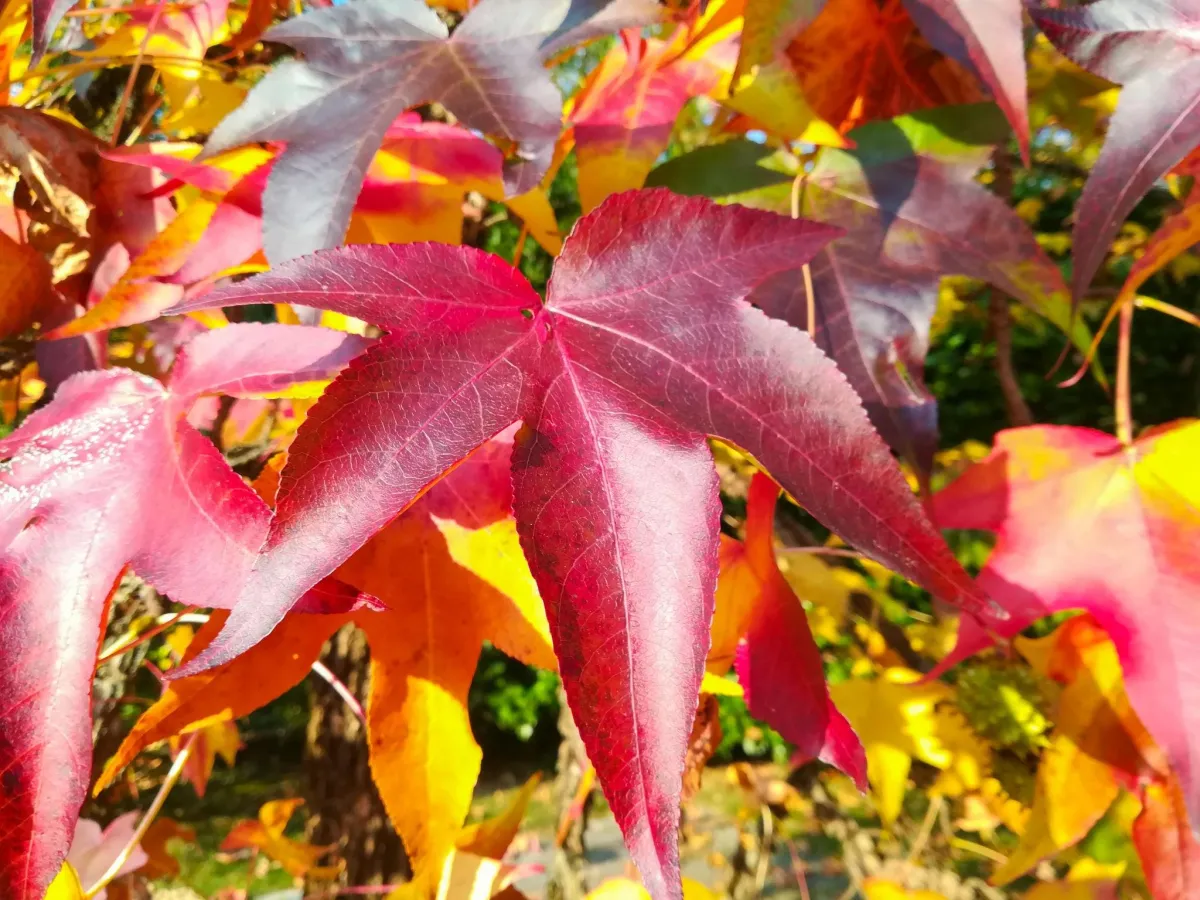
Sweetgum (Liquidambar styraciflua)
This deciduous tree is known for its striking fall colors, which can range from yellow to orange to red. It is a good choice for larger yards. Sweetgum trees are also known for their unique, spiny seed balls.
Shrubs with the most vibrant foliage
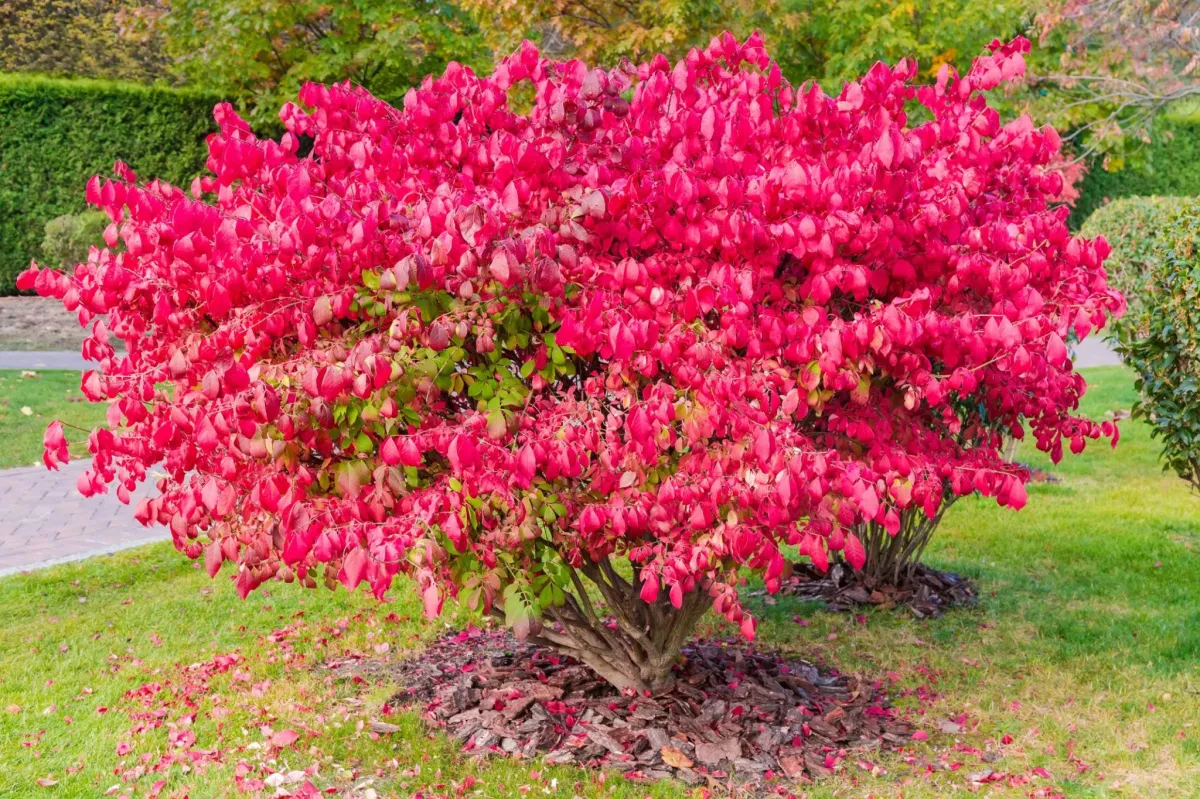
Burning Bush (Euonymus alatus)
This deciduous shrub is known for its fiery red fall foliage. It is a low-maintenance shrub that can be used as a hedge or a specimen plant. Burning bushes are native to Asia and are popular ornamental shrubs in North America.
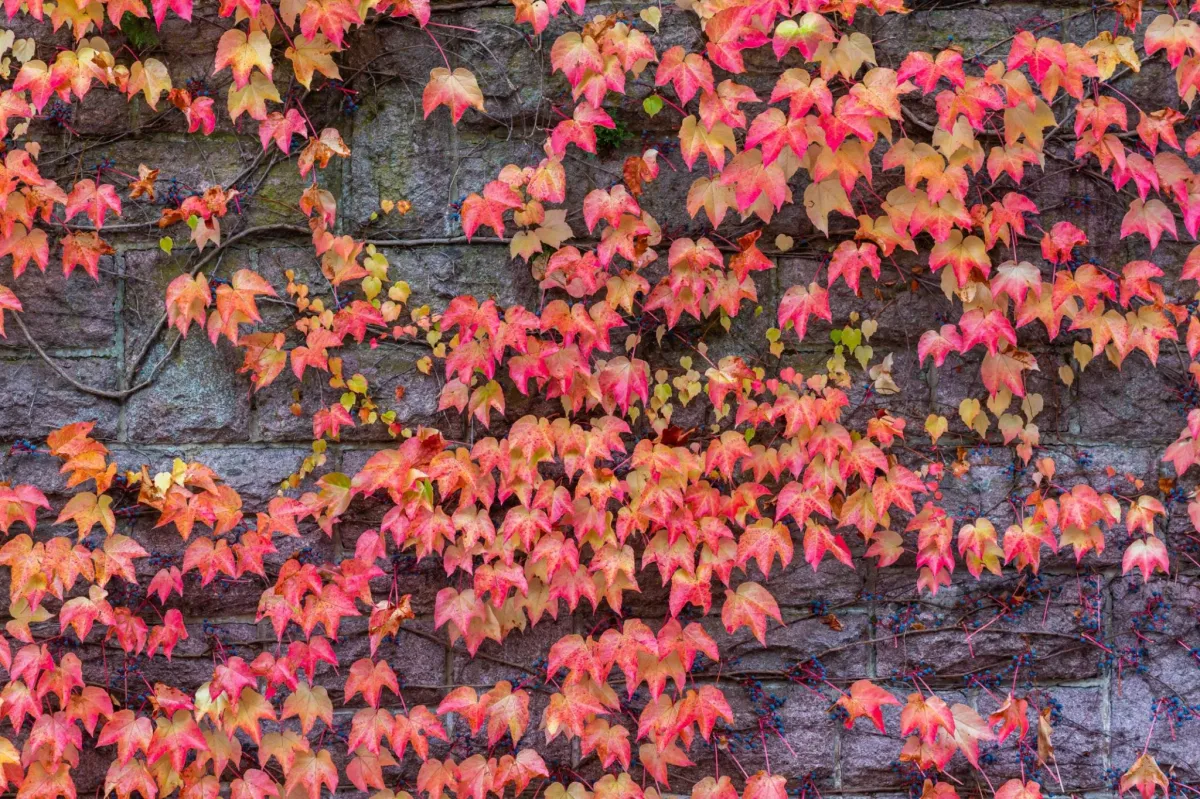
Virginia Creeper (Parthenocissus quinquefolia)
This vine can be trained to climb a wall or fence. It offers a stunning display of red fall foliage and can be used to add color to your landscape. Virginia creepers are native to North America and can be found growing in forests and along stream banks.
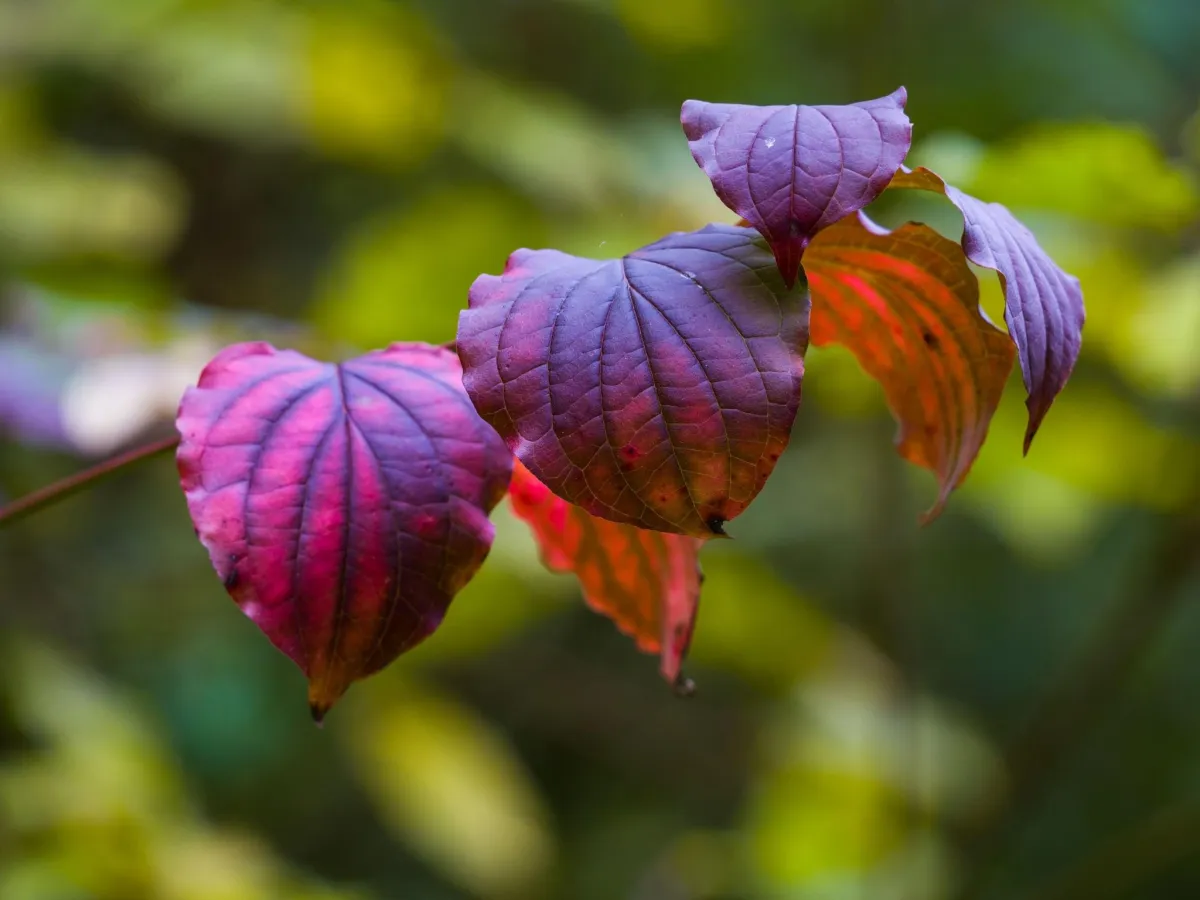
Dogwood (Cornus sericea)
While dogwoods are best known for their beautiful spring blooms, they also offer a delightful display of fall foliage. The leaves of dogwood trees can turn shades of red, purple, or orange, depending on the variety and growing conditions. Some dogwoods even produce colorful berries that persist into the fall, adding to their visual appeal. The combination of spring blooms and fall foliage makes dogwoods a versatile and attractive addition to any landscape.
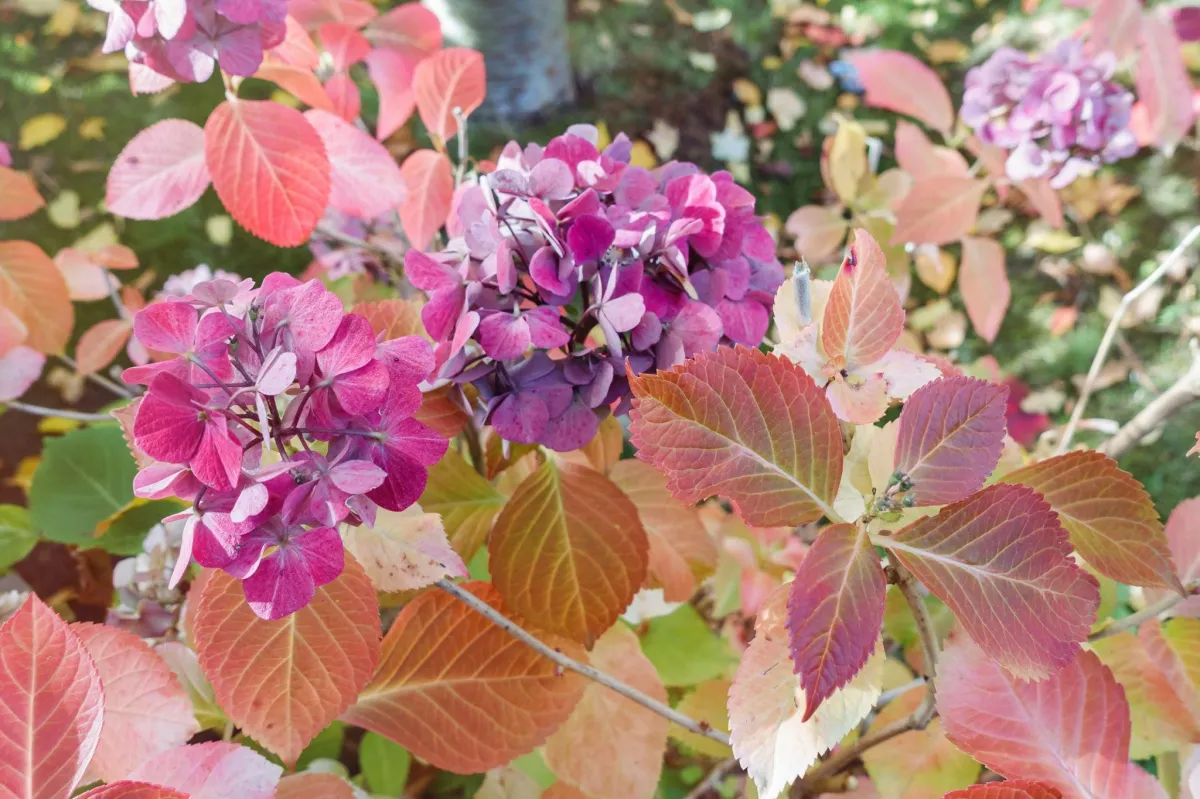
Hydrangea (Hydrangea macrophylla)
Hydrangeas are beloved for their large, showy flower clusters that come in a variety of colors, including pink, blue, purple, and white. While they are often associated with summer blooms, some hydrangea cultivars can produce vibrant fall colors as well. The color of hydrangea blooms can be influenced by soil pH, with acidic soil producing blue flowers and alkaline soil producing pink flowers. However, certain hydrangea varieties are naturally inclined to change color in the fall, regardless of soil pH. These cultivars often display shades of red, purple, or bronze as the days grow shorter and temperatures cool. If you're looking for a hydrangea that will add a pop of color to your garden in autumn, consider planting one of these stunning varieties.
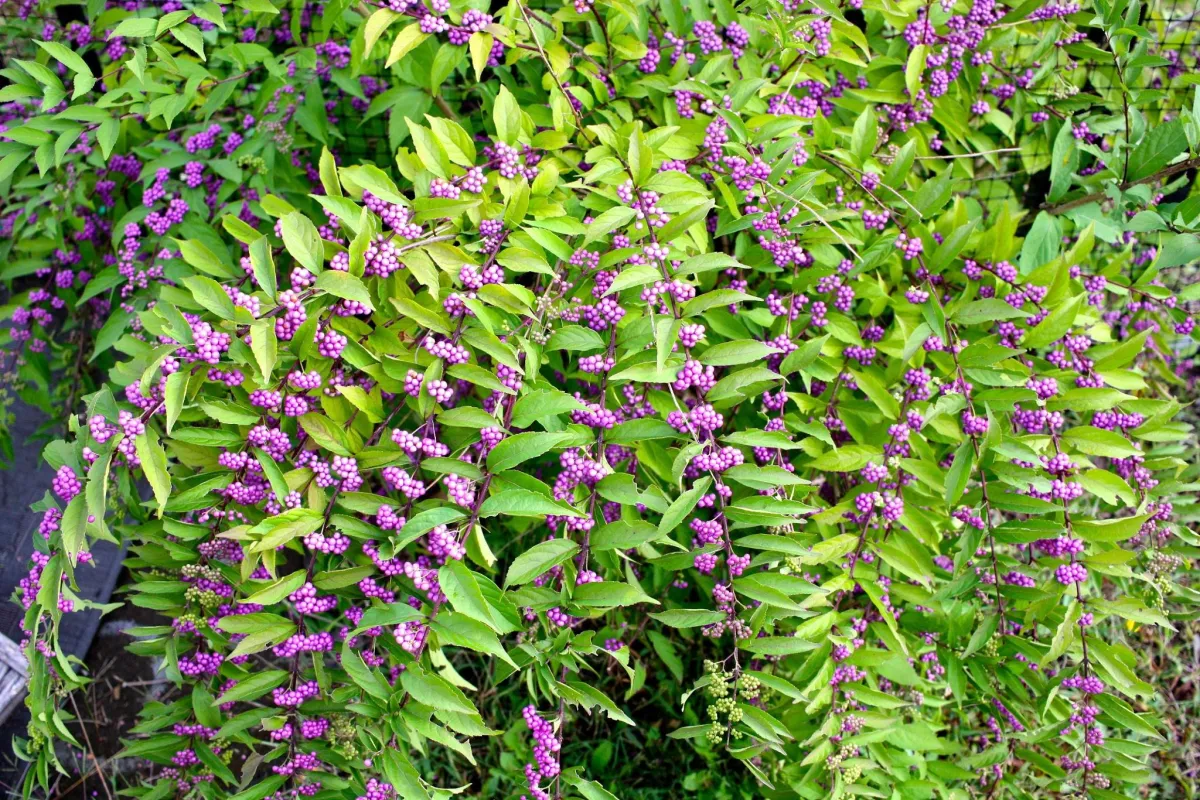
Beautyberry (Callicarpa americana)
This shrub is known for its showy clusters of purple berries that persist into the fall. It also offers attractive fall foliage. Beautyberries are native to North America and are a popular choice for attracting wildlife to your garden.
Tips for Achieving Optimal Fall Color
Proper Care
To ensure your trees and shrubs are in optimal health and ready to showcase their vibrant fall colors, provide them with the care they need throughout the growing season. This includes:
Watering: Water your plants deeply and infrequently, especially during dry periods. Avoid shallow watering, as it can encourage shallow roots and make plants more susceptible to drought stress.
Fertilizing: While overfertilization can hinder fall color, providing your plants with the essential nutrients they need is crucial. Conduct regular soil tests to determine nutrient deficiencies and apply a balanced fertilizer as needed. Avoid excessive fertilization, as it can encourage excessive growth and reduce the plant's ability to produce pigments for fall foliage.
Pruning: Proper pruning can help to maintain the shape and health of your plants, and may also enhance fall color. Remove dead or diseased branches and thin out overcrowded branches to improve air circulation and sunlight penetration. Avoid heavy pruning in the fall, as this can stress plants and reduce their ability to produce vibrant fall colors. Learn more here.
Consider Environmental Factors
Environmental factors can also influence fall color. Ensure your plants are planted in locations that receive adequate sunlight and have well-draining soil. Avoid planting trees and shrubs in areas that are prone to frost or cold drafts.
Protect from Pests and Diseases
Monitor your plants for signs of pests and diseases and take appropriate action to control them. Pests and diseases can weaken plants and reduce their ability to produce vibrant fall colors. Regular inspections and timely treatments can help to keep your plants healthy and thriving. Learn more here.
Note:
If you want to enjoy the beauty of these trees and shrubs next fall, it's important to plant them this year. Many of these plants take time to establish and mature before they produce their full display of fall colors. By planting them now, you can look forward to a stunning autumn display in your Louisville yard next year.
Contact Us
Service Hours
Social Media
Looking for landscaping, lawn care, or other home services?

Contact Us
+1 502-483-0511
Prospect, Louisville, KY 40222
Service Hours
Mon- Fri: 9am - 5pm
Sat & Sun: Appt Only
Social Media

2026 | Apex Pros | Rights Reserved





